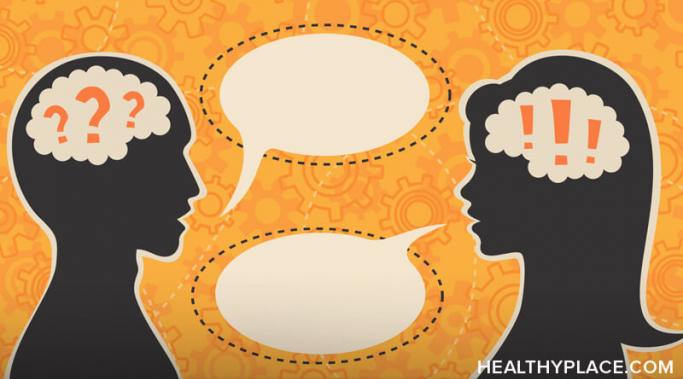Instead of apologizing all the time for the shortcomings you believe make you less worthy, try practicing forgiveness as a method to build your self-esteem. How will practicing forgiveness help your self-esteem grow?
Communicating with Confidence
There's a well-known saying that goes, "Other people's opinions are none of your business," and when it comes to your journey to build self-esteem, this needs to be taken to heart. Self-esteem issues are often very connected to how much we allow other people's opinions to color our own. Read on to learn how my quest to build stronger self-esteem was affected by other people's opinions.
When self-esteem is low, we often think we need to work harder and get more done to be a valued person, but the truth is, your self-esteem will grow when you find the beauty of doing less, not more. When I learned this lesson, nobody suffered from me doing less, and my self-esteem blossomed because I was more likely to successfully fulfill my commitments.
Boundary-setting is an important skill set to practice when you are on a journey to build stronger self-esteem. Like any other new activity that seems challenging in the beginning, your mastery will improve every time you try it.
When you practice setting boundaries that protect your self-esteem, you are supporting yourself in many ways. It shows you love and respect yourself, and it keeps you from grief when others attempt to abuse you, intentionally or inadvertently. Whether it's between you and people you love and choose to have in your life or people you must interact with for your job or another requirement, creating a boundary that reflects your needs will strengthen your self-esteem.
Does seeing a therapist increase self-esteem and the self-esteem building process? While our society is working hard to de-stigmatize the belief that therapy exists only for people in crisis or with chronic mental illness, we still tend to think of therapy as something to help us move from bad to neutral, instead of from neutral to good. Yet therapists are trained to understand how the mind can build confidence and create sustainable change. As you consider adding therapy to your self-esteem journey, read on to learn three ways that therapy can help increase self-esteem.
If you don't show yourself respect, neither will other people. How are you supposed to feel confident, assertive and develop self-esteem if you don't show yourself some respect? Others may take advantage of you, people can be intimidating or situations you encounter may be so overwhelming it makes it hard to respect yourself. I've got three simple tools that can help you feel more confident communicating with others so you can show yourself respect.
If you use dialectical behavior therapy (DBT) skills to communicate with confidence you will notice incredible changes. Who doesn't want to feel more in control and confident before entering a conversation, especially if there is some tension between you and the other person? This new DBT skill is one of the best skills I've come across to help you confident before you say a word. The video will help you use DBT skills to communicate with confidence.
Teen girls struggle more than ever with confidence, but do you know why? Communicating with confidence can be a huge challenge find out why and the impact it has on her self-esteem.
So many people have come to me with the desire to become a more assertive and confident communicator. They see others who do it well and want to feel that confidence but don't know how. Perhaps they haven't had enough practice, they don't know where to start, their emotions are too intense or because speaking up and expressing yourself is scary. All may be true, but if you don't communicate assertively, you're not going to feel confident in communicating with others and will feel lower self-confidence in general. Watch this video to learn skills that make you a more assertive and confident communicator.









